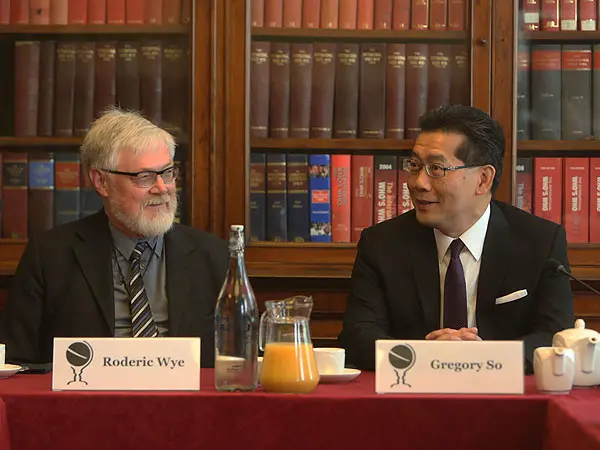Former Spanish Prime Minister Adolfo Suarez died on Sunday following a long illness.
Suarez will be remembered as the first Spanish prime minister following the death of General Franco in November 1975 and as a key figure in Spain's transition from dictatorship to democracy.
Historian Javier Tusell considered Suarez's role in the Transition to be "second only to that of the King (Juan Carlos)," after Juan Carlos, who had succeeded Franco as the head of state, named Suarez as the prime minister in the new government formed on July 4, 1976.
Hearing the news of the ex-prime minister's death, King Juan Carlos of Spain was one of the first people to pay homage to Suarez, who had been suffering from Alzheimer's disease for the past decade.
He worked closely with the Monarch, with whom he enjoyed a close relationship.
Suarez's death had been expected after the ex-prime minister's son confirmed on Friday that his father had around 48 hours to live.
Juan Carlos released an official message in which he said "Adolfo Suarez was a man of State who put the interests of Spanish society above his interest and that of his political party."
The King then took the step of speaking to the nation on Spanish television in which he declared: "as King, I had a loyal friend and an exceptional collaborator. I had a guide who showed loyalty to the crown and all it represented: the defense of democracy, the State of Rights and the unity and diversity of Spain."
Speaking of the period known as the Transition in Spain, King Juan Carlos said it was"one of the most brilliant chapters in the history of Spain, acted out by the Spanish people and under the impulse of Adolfo Suarez and myself together with an exceptional group of people."
"My gratitude to Suarez is deep and permanent and today my sadness is deep," said the King.
Suarez, who formed the Union of Democratic Center Party (UCD), was elected prime minister in 1977 in the first democratic elections for 41 years.
His next four years in office saw many important steps taken to democratising Spain, such as the approval of laws which once again made legal the Spanish Socialist (PSOE) and Communist Parties, as well as Basque and Catalan nationalist groups.
His mandate also saw the writing of the current Spanish Constitution, which was approved by a public referendum in December 1978.
Suarez was re-elected in 1979, under the terms of the new constitution, but resigned on Jan. 29, 1981, shortly before an attempted military coup on Feb. 23, which failed in the wake of the lack of support from the King and the popular opposition of the Spanish people, who took to the streets in their hundreds of thousands to help defend their fledgling democracy.
He made a brief return to politics in the 1982 election with a new Centro Democratico and Social party (CDS), but was defeated as the PSOE swept to power on a wave of optimism and slowly withdrew from public life, retiring from politics completely in 1991.
The Spanish government has declared three days of official mourning for Suarez and Prime Minister Mariano Rajoy, who cancelled an official visit on hearing of his death, also spoke highly of the former leader.
"He was one of the greats of our time and we are all enjoying what he did today," said Rajoy, who added Suarez's "love for Spain was decisive to strengthen the links which unite us."
"His example shows that the Spanish are capable of overcoming the most important problems," said Rajoy.
Spain's last Socialist leader, Jose Rodriguez Zapatero, said that the man who had been partly responsible for making his party legal after 41 years of dictatorship deserved a "sincere, fair and unanimous homage."
"He deserves it, Spain and democracy deserve it," said Zapatero in a statement where he highlighted that Suarez had "led the change from an old and tired nation to a democratic country which is reconciled with itself."
Suarez had not always been a democrat, indeed the man who was born to a working class family in 1932, four years before the start of the Spanish Civil War, had qualified as a lawyer before progressing through the ranks of Franco's National Movement, being Vice-General Secretary between 1961 and 1964.
He was also the Civil Governor of Segovia between 1968-69, before being made Deputy Secretary General of the National Movement in March 1975 and General Secretary in December 1975 after Franco's death.
Suarez also worked for the Spanish state radio and television network during the period in which the strict censorship laws operating in the country at the time were relaxed somewhat.
His last 10 years were spent struggling with Alzheimer's disease and several years ago his son, Adolfo admitted that his father did not even remember he had been a prime minister.
 简体中文
简体中文



